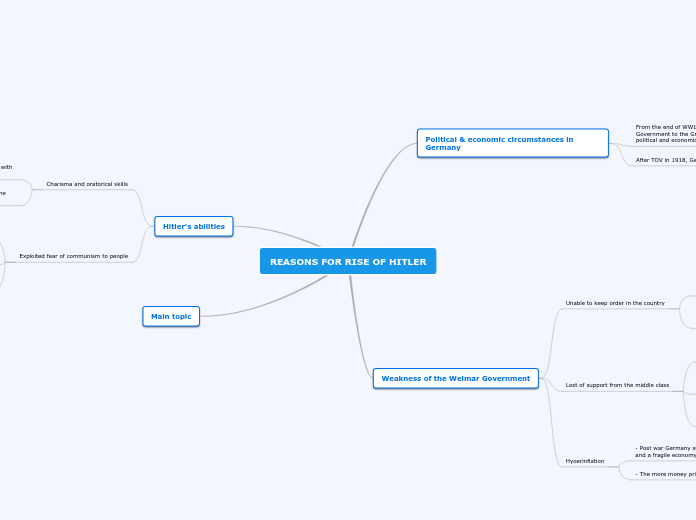REASONS FOR RISE OF HITLER
Political & economic circumstances in Germany
From the end of WW1 in 1918 to the rule of the Weimar Government to the Great Depression, Germany experienced political and economic instability.
After TOV in 1918, Germany was at the point of defeat.
Weakness of the Weimar Government
Unable to keep order in the country
- Members of the Weimar Government became targets for attack. There were 376 political murders.
- Due to the level of violence in the country, people lost confidence in the governments ability to maintain law and order.
Lost of support from the middle class
- Weimar Government was heavily in debt due to the payment of war reparations.
- Germany problems worsened by the hyper-inflation caused by the overprinting of money which the government used to pay off its debts.
- The middle class stopped supporting the government as they believed that the government and its democratic system had failed.
Hyoerinflation
- Post war Germany suffered with poverty, high unemployment and a fragile economy.
6 million people were unemployed during the Great Depression.
- The more money printed, the more the value decreased.
Hitler's abilities
Charisma and oratorical skills
- Hitler had a natural ability to capture people's attention with his public speaking skills.
- He inspired confidence and belief among Germans that he could be the one to lead Germany out of its problems.
Exploited fear of communism to people
- He made use of propaganda to spread fear about the aims of communism.
- Convinced people that the Nazi Party was the only party capable of providing order and stopping the communists.
- This made many rich industrialists support the Nazis as they wanted an anti-communist government.
